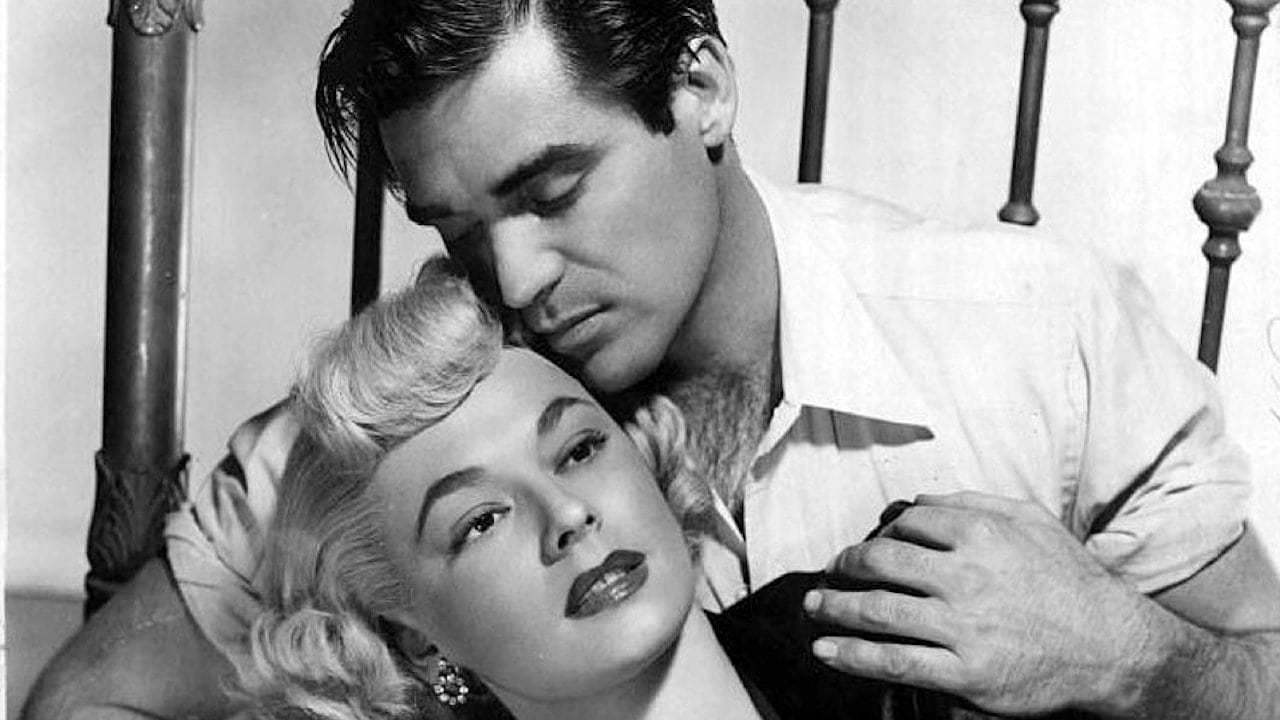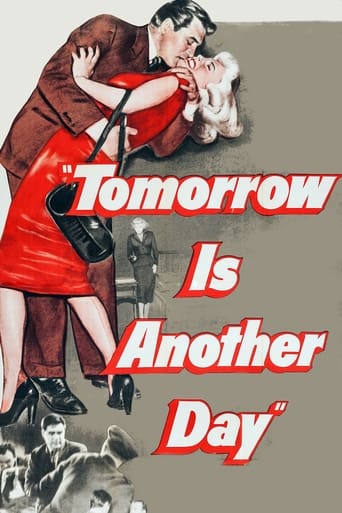



Save your money for something good and enjoyable
At first rather annoying in its heavy emphasis on reenactments, this movie ultimately proves fascinating, simply because the complicated, highly dramatic tale it tells still almost defies belief.
View MoreIf you like to be scared, if you like to laugh, and if you like to learn a thing or two at the movies, this absolutely cannot be missed.
View MoreActress is magnificent and exudes a hypnotic screen presence in this affecting drama.
View MoreRuth Roman (Catherine), Steve Cochran (Bill Clark), Lurene Tuttle (Mrs Dawson), Ray Teal (Mr Dawson), Morris Ankrum (Hugh Wagner), John Kellogg (Monroe), Lee Patrick (Janet Higgins), Hugh Sanders (Conover), Stuart Randall (Frank Higgins), Bobby Hyatt (Johnny), Harry Antrim (warden), Walter Sande (sheriff).Director: FELIX E. FEIST. Screenwriters: Art Cohn, Guy Endore, based on the story "Spring Kill" by Guy Endore. Film editor: Alan Crosland Jr. Cinematographer: Robert Burks. Music director: Ray Heindorf. Music composer: Daniele Amfitheatrof. Art director: Charles H. Clarke. Producer: Henry Blanke.Copyright 18 September 1951 by Warner Brothers Pictures, Inc. New York opening at the Holiday: 8 August 1951. U.S. release: 22 September 1951. U.K. release: 25 February 1952. Australian release: 14 March 1952. 8,174 feet. 90 minutes.SYNOPSIS: After serving 18 years for the murder of his father, an embittered man of 31 falls in love with a prostitute and is involved in the shooting of a policeman.COMMENT: Well written, neatly directed, competently acted and superbly photographed melodrama. Though there is very little action, the screenplay holds the interest, achieving its impact with sharply realistic dialogue and suspenseful situations.OTHER VIEWS: This melodrama begins quite promisingly, with some neat observation of settings such as the shabby dance-hall and roadside cafés. But the material is unduly familiar — and the ending is unlikely. — Monthly Film Bulletin.
View MoreAn ex-con and a dance hall girl flee the cops and a wrongful murder charge.Catch that early scene in the tacky dance hall— it's a gem. I've seen a lot of cheap dives in movies, but none I think combines atmosphere and annoyance better than this one. Between the hard dames and the 1-minute buzzer, the guys better hold onto their wallets. Then too, the Warner Bros. production manages uncommon attention to detail. Note how taxi-dancer Cay (Roman) ends the dance hall scene by soliciting another customer. That way we know she's a real hard case no matter what she's said to poor Clark (Cochran).These touches continue throughout, as with the back-and-forth wristwatch mirroring Cay's and Clark's relationship, or the heart-stopping dropped keys that unlock the carry-all car. All in all, these are the kind of deft touches that turn a good film into a memorable one.However, despite the excellence of this noirish first half, I have to agree with reviewer Teller. The second half unfortunately collapses into unremarkable melodrama. Frankly, Cay's big turnaround from loose woman to wifely Madonna is simply too complete to be believable. That transformation is signaled in her change of hair color. There, Cay washes out the dance hall blonde for the darker natural color underneath, thereby releasing the real person redeemed now by true love. However, the problem remains-- the personality contrast between the "hard-case before" and the "all-sweetness after" is simply too strong and abrupt not to draw critical attention, regardless of how worthwhile the message.That's not to say the second part is wasted. Those clapboard shacks for the transient pickers are right out of Grapes of Wrath and just as realistic. Plus, Clark's personality remains volatile and believable, though undergoing the inevitable softening. I just wish the film had modulated Kay's change in a similarly subtle manner. Then we might have had a memorable whole instead of a memorable half.
View MoreThe title sounds like a soap opera, and it kinda is, with some noirish touches. The first 30 minutes are familiar fare to any noir fan: ex-convict has troubles finding his way on the outside, meets a scheming blonde who only thinks of looking after Number One. At her place they run into her beau, who's none too pleased. Fists fly, and soon enough a shot is fired,hitting the boyfriend. We know it's the dame that did it, but since the ex-con was knocked out before the gun went off he doesn't know he's innocent. She doesn't clear things up for him, for obvious reasons. Fearing the worst, they hit the road together. From then on the melodrama takes over: she washes the bleach out of her hair, and becomes a reformed woman almost instantly. Love starts to bloom and they throw in their lot together. Will they ever find true happiness? At this point the movie lover who likes his noir hard-boiled might as well switch off. Those who sit out the rest of the movie either learn to care for the star-crossed couple or will feel cheated out of a good chase movie. I'm sort of on the fence about this one; both leads are engaging enough, but the story could have used more grit. Noir fans should try this one out, it has enough going for it, but be warned: Bonny And Clyde it ain't.
View MoreYeah, I know, Scarlett O'Hara's favorite maxim. If by some weird set of circumstances this thoughtful little gem shows up on your TV after the latest infomercial, tape it, go to bed, and sometime when you're in the mood for some reflective film watching, shove it in the VCR maw. Steve Cochran plays a really dumb guy who gets entwined with Ruth Roman's cynical, smart loser dame through a series of preposterous events. If J. D. Salinger had written a crime film, it would have probably turned out like this. Why are films like this so hard to find? Other '50's obscurities worth checking out: Eight Iron Men; Kiss Me Deadly; Rogue River; Violent Saturday; Blood And Steel; Paratroop Command; Convicts Four (actually '62, but a great prison film.) I give up, nobody seems to remember anything about movies since 1980 anyway.
View More